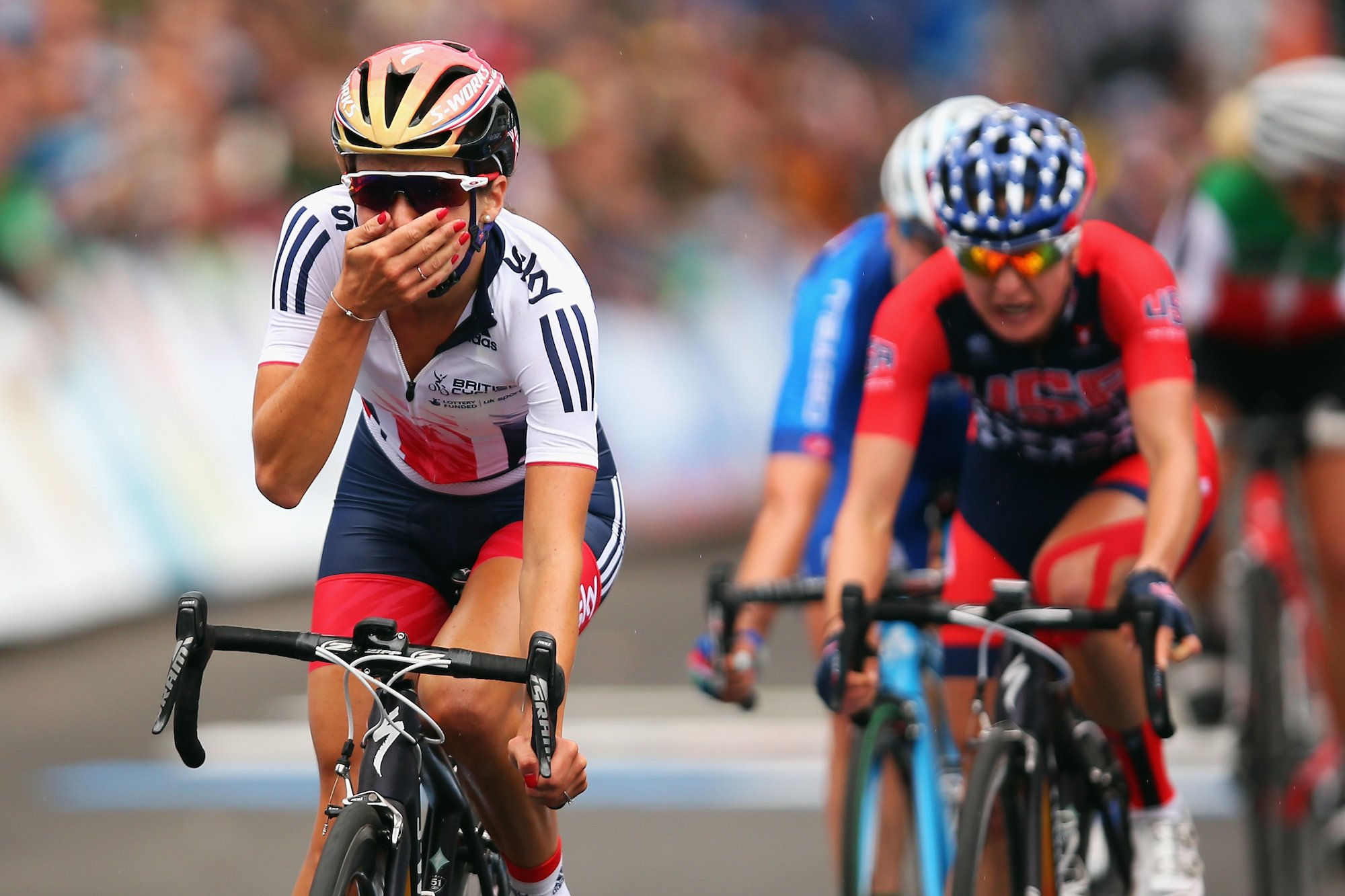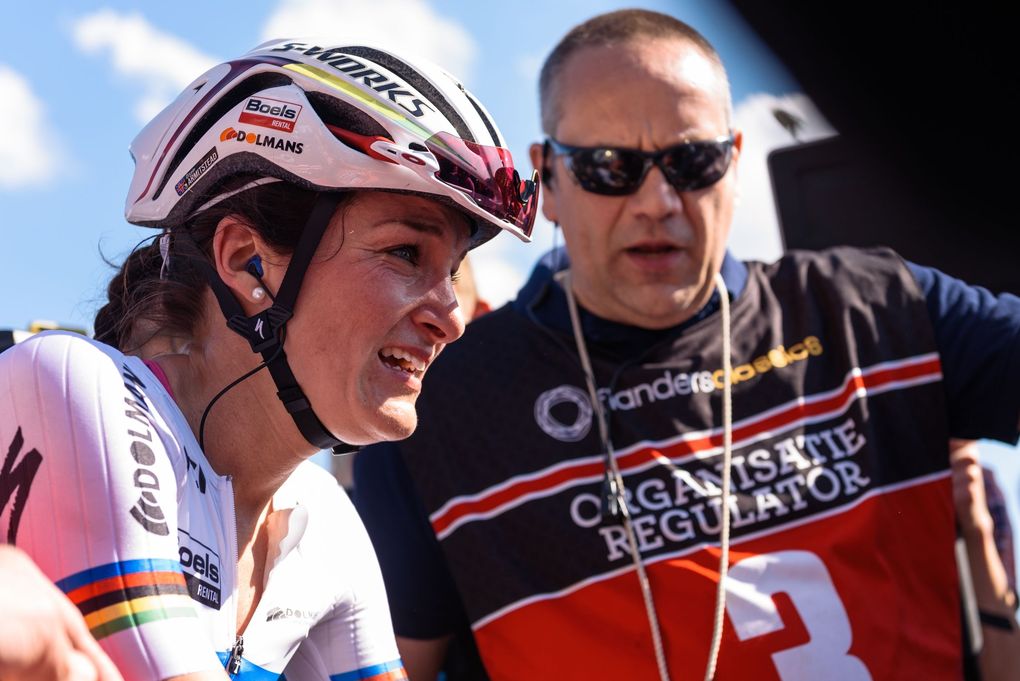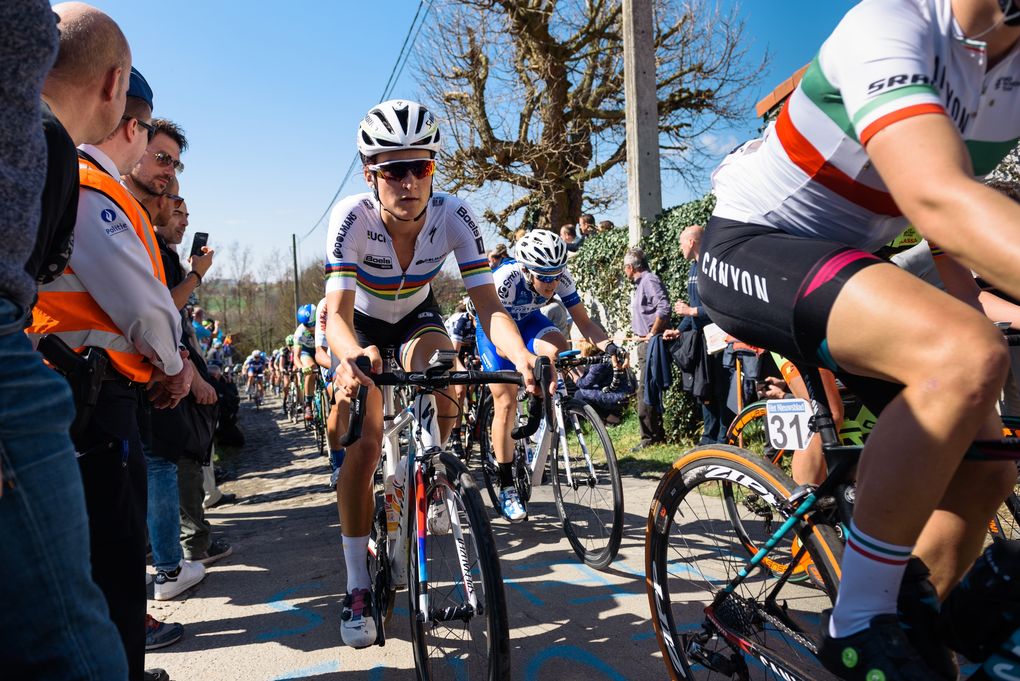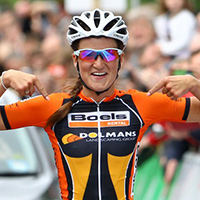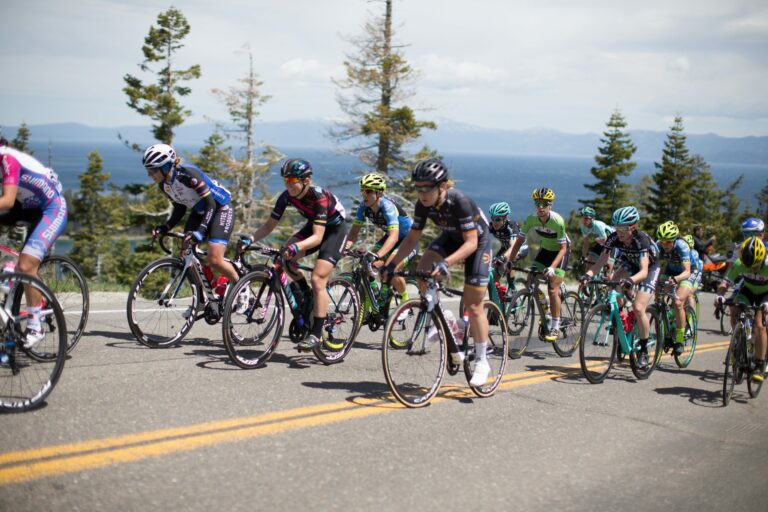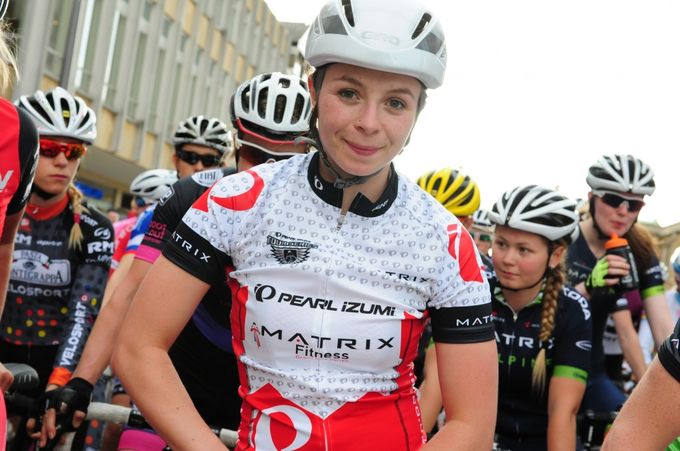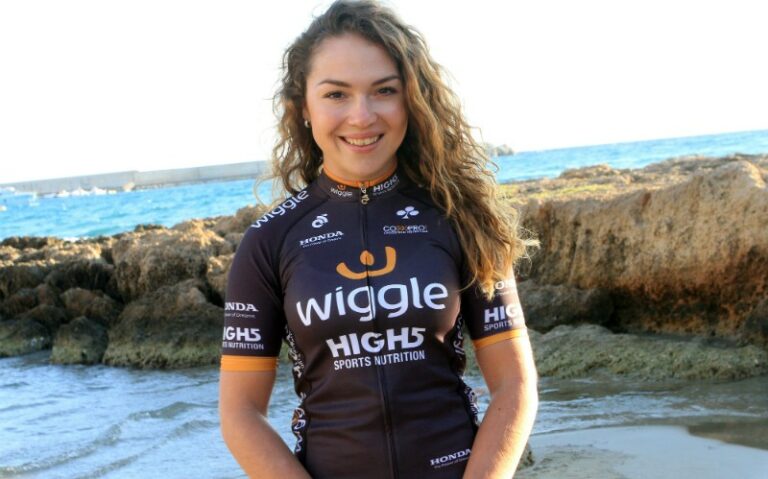World Champion Lizzie Armitstead has been riding a winning wave this year – that much is undeniable.
She kicked off the season by winning Omloop Nieuwsblad, followed it up with first at Strade Bianche, then won the Trofeo Binda, and took the top step at the Tour of Flanders – one of her key season goals. Leading the UCI Women’s World Tour standings, she’s certainly not feeling the effects of the much cited ‘Curse of the Rainbow Jersey’.
We were lucky enough to catch up with Armitstead this week as she made a flying visit to the UK, to enjoy some much needed rest and prepare herself for the Tour de Yorkshire this coming weekend. Of course her huge success over 2016 was a key topic of conversation – but there were three major C words that cropped up…
Lizzie Armitstead on: Confidence
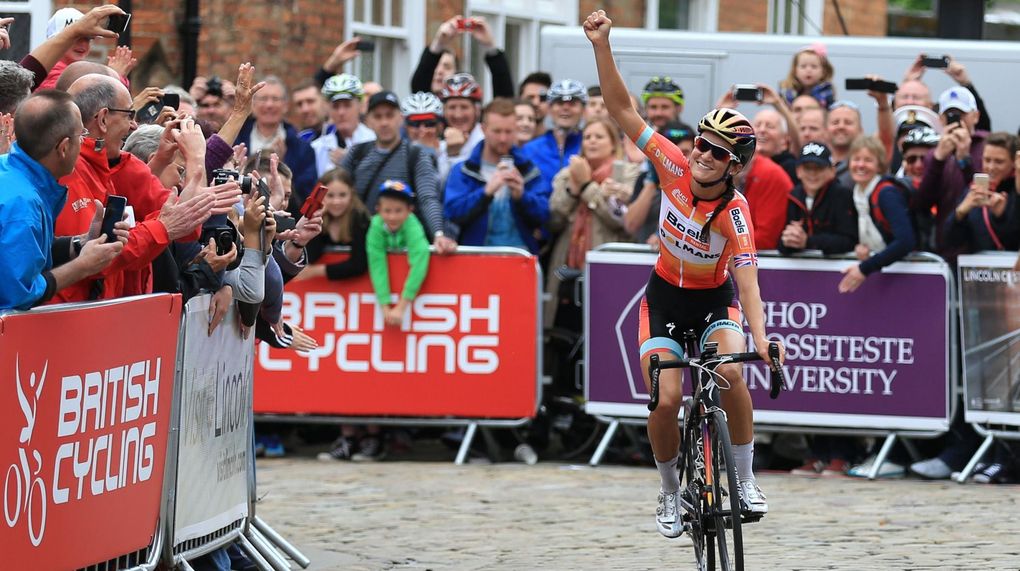
Armitstead puts much of her recent good form down to our first big C: Confidence. Something she tells us she’s only learnt to harness recently.
How to: Win the Mental Battle when Cycling Gets Tough
She explains: “Confidence is vital. Since winning Richmond my confidence has become one of my assets. Before it was one of my weaknesses. And I see so many women that hold themselves back. They do everything right, but when it comes to the crunch time, they don’t have the confidence. They don’t believe in themselves. It’s easy to exploit that in some athletes… a simple ‘oh, you look a bit tired today’ – and that’s it.
“The mind is such a vital part of being an athlete. It’s only recently that I’ve grasped that. And it’s almost like a decision.”
“The mind is such a vital part of being an athlete. It’s only recently that I’ve grasped that. And it’s almost like a decision, it’s almost like a flick of the switch. [You have to think] ‘I compromise so much in my life, I train 100%, and I’m letting myself down in the last minute by not being confident’. It’s a decision that now I’m going to be confident and I’m going to give myself the best chance.”
Cycling and the Psychology of Fear
Confidence is something that a lot of women struggle with in their riding – and we rather meanly asked Armitstead to hypothesise as to why. She had an idea, saying: “[Women often put themselves down before races] out of fear, it’s fear of failure. If you set yourself up for failure, it softens the blow if you don’t achieve. But I think it’s really important that people recognise that and give themselves an opportunity. At the end of the day, it’s just bike racing, it’s not that important [so there’s no reason to be so scared of failure]. Give yourself the best opportunity, because you’ve sacrificed so much already – so be confident.”

